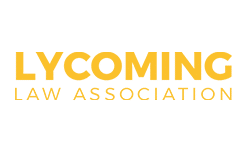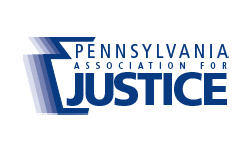We don’t know the full extent of the abuse perpetrated against nursing home residents in the U.S. each year. It may be that as few as 1 in 24 cases of elder abuse gets reported. The World Health Organization (WHO) reports that nursing homes and long-term care facilities have the highest incident rates of abuse and neglect, and rates of abuse have only worsened since the beginning of the COVID-19 pandemic.
We never want to believe that mistreatment in the nursing homes designed to protect and care for our aging loved ones is a possibility. But statistics indicate that as many as 1 in 3 nursing home victims has been the victim of abuse, and as many as 2 in 3 nursing home staff members have admitted to abuse. If your loved one has been abused or neglected in a long-term care facility, a Lewisburg nursing home abuse lawyer from Stapp Law, LLC is available to offer legal guidance regarding your family’s options.
What Rights Do Nursing Home Residents Have?
There are regulations at both the federal and state level that protect the rights of individuals living in nursing homes and other care facilities. Older adults residing in long-term care facilities in Lewisburg, PA and Union County have the legal privilege to enjoy safe, comfortable living conditions that promote physical, mental, emotional, and spiritual health. Among other rights, residents of nursing homes have the right to:
- Be free from any type of abuse, neglect, intimidation, mistreatment, or physical punishment.
- Have their personal information and medical history kept private.
- Live in a safe, secure, comfortable, and sanitary environment.
- Be treated with dignity and respect in all matters, without fear of mistreatment.
- Be informed of health care and medical treatment plans.
- Make their own decisions regarding treatment and choice of doctors.
- Have the means to good physical health, mental health, nutrition, and hydration.
- Be free from any type of discrimination.
- Communicate privately with a local ombudsman if desired.
If your loved one is unsure about how to reach a local ombudsman, the Union-Snyder Agency on Aging, Inc. (USAA, Inc.) offers advocacy, information, and assistance to seniors residing in Lewisburg and Union County. The Agency’s Ombudsman Program connects local residents with an ombudsman—an individual trained and certified by the Pennsylvania Office of the Long-Term Care Ombudsman to help nursing home residents resolve concerns and complaints within their assisted living facility.
What Are the Common Types and Signs of Nursing Home Abuse?
The most common types of elder abuse are physical abuse (including sexual abuse), emotional or psychological abuse, financial exploitation, and neglect.
Physical Abuse
This type of elder abuse may be one of the most underreported forms of cruelty against nursing home residents. The U.S. Department of Justice estimates that only 1 in 20 cases of physical elder abuse is reported to authorities. Physical abuse, which can also include sexual abuse against elderly individuals, causes great psychological as well as bodily harm. Research has shown a strong link between abuse and deteriorating health conditions in older adults.
The following signs may be observed in a victim of nursing home physical abuse:
- Injuries that have not been treated, or have been self-treated
- Bruises, signs of restraint, broken bones, burns, lacerations, or sprains
- Injuries that appear with a lack of explanation
- Torn clothing, broken glasses, or other damaged personal property
- Withdrawal from social activities
- Tooth and hair loss
- Repeated treatments for similar injuries
- Depression and loss of enjoyment of hobbies or other interests
Emotional Abuse
The umbrella category of emotional or psychological abuse includes all forms of harmful non-physical mistreatment in nursing homes. These may include verbal abuse, intimidation, threatening, withholding affection, humiliation, deliberately deceiving, harsh criticism, bullying, false accusations, name-calling, and gaslighting and other forms of manipulation. This form of elder abuse is believed to be the most prevalent. In most cases, emotional abuse is not a single-incident event, but rather an ongoing pattern of behavior.
Victims of emotional abuse in a nursing home may exhibit symptoms of:
- Withdrawal and isolation
- Changes in mood and personality, even exhibiting violence toward others
- Changes in attitude or behavior toward the abuser
- Increased cries for attention
- Silence or unwillingness to communicate
- Feelings of despair, worthlessness, guilt, and low self-esteem
- Sensitivity to their surroundings, especially loud noises
- Inability to trust others
Financial Exploitation
Financial exploitation, or financial abuse, is a form of abuse in which an older individual’s funds or assets are misused or used without their consent. It is often a trusted individual who violates the trust of the elder and takes advantage of a situation for financial gain. If you observe any nursing home staff member or other caregiver who seems to take a particular interest in your relative’s finances—even if they seem to have helpful intentions—it’s best to keep an eye on their behavior.
Indications of financial exploitation can include:
- Unexplained large-sum withdrawals from bank accounts
- Sudden addition of names to accounts, deeds, or a will
- Missing valuables or property
- Purchases of objects or services the account-holder would not normally use
- ATM withdrawals when the account-holder is not present
- Online purchases when the account-holder does not have or use internet access
- Unpaid bills when there is sufficient money to pay them
- Alleged investments or financial decisions that have no documentation
Neglect
Not all nursing home abuse is a direct act of violence. The term nursing home neglect refers to the negligent behaviors of caregivers who do not attend to the needs of residents. Nursing homes are designed to provide care to those who are unable to properly care for themselves. When a nursing home fails in this duty, they may be held liable for their harmful actions. Care center staff members need to devote particular attention to individuals who are prone to self-neglect, high fall risk patients, and those who may be at risk for elopement (wandering). This often includes Alzheimer’s patients and those suffering from dementia.
If you observe any of the following signs, there may be reason to suspect nursing home negligence:
- Malnutrition, dehydration, and weight loss
- Bedsores
- Dirty, unchanged clothes, or clothing inappropriate for the season
- Poor personal hygiene
- Necessary medications that have not been taken
- Untreated infections
- Falling or wandering without being observed
- No means of calling for help if needed
Taking Action Against Nursing Home Abuse and Neglect
There are other forms of nursing home abuse, neglect, and exploitation that may not be listed above. Nursing home abuse attorneys are aware of the new and recent forms of nursing home cruelty that have been exposed since the onset of the COVID-19 pandemic. Many families have grieved the losses of loved ones who were not protected adequately from the spread of infection in their long-term care facilities. The situation has been made worse as nursing homes are understaffed and struggle to retain skilled, caring employees—sometimes resorting to poor hiring or training practices in an effort to stay in business.
No matter what type of abuse or neglect your loved one suffered, a Lewisburg nursing home abuse lawyer from Stapp Law, LLC can provide compassionate and actionable advice about what steps to take next. We understand that elder abuse is one of the most difficult situations a family can face, and we remain sensitive to the emotional needs of our clients through every step of the legal process.
Abuse in residential care homes in Lewisburg, PA should never be allowed to continue. It’s the responsibility of nursing home abuse attorneys to protect not only those who have been injured, but those who may be victimized in the future if the harm is not stopped. If you suspect that someone you know may be living in a care facility that is allowing abuse or neglect to take place under its roof, you may reach out to a Lewisburg nursing home abuse lawyer from our office—even if you are not sure you are able to prove the abuse. We can schedule a free consultation to discuss your case.






